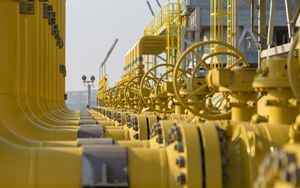(Finance) – Two days after the submission of the application to join NATO, the Finland it faces Russia’s first countermeasure. Gasum, the Finnish state-owned gas distributor, said the Natural gas imports from Russia will be stopped from Saturday. The lost supplies are likely to have limited impact on the Nordic nation’s economy, with gas accounting for only about 5% of its energy mix and used primarily by factories, but it is a wake-up call for other European countries as well.
In fact, the initiatives of the various states are multiplying to reduce dependence on Russian supplies. For the coming winter, the Finnish government has agreed to lease a floating LNG terminal together with Estonia. “The new LNG ship is a significant step in improving the security of energy supply in Finland – said Finance Minister Annika Saarikko – This will allow it to break away from Russian energy. The importance of the project cannot be underestimated now”.
Germany tries to diversify its sources
Today Qatar and Germany signed agreements to deepen their energy partnership, with particular attention to supplies of hydrogen and liquefied natural gas (LNG). “The issue of energy security plays an important role for us. Germany will develop its infrastructure to be able to import liquefied gas by ship,” German Chancellor Olaf Scholz said during a joint press conference with the Emir of Qatar. Sheikh Tamim bin Hamad Al Thani.
Germany could receive liquefied natural gas in 2024 from Golden Pass, a new facility in the United States of which Qatar Energy is a stakeholder. Furthermore, Scholz stated that the Germany will build two new LNG terminals to accelerate the import of liquefied natural gas from other countries, with the new facilities expected to be completed by 2026.
The alarm for Italy despite the progress made
An alarm also came for Italy today. The analysis of the existing gas supply infrastructures, carried out by CDP analysts, “highlights how Italy is close to the critical threshold of inadequacy“and the system” would encounter serious difficulties in meeting the maximum daily gas demand “in the event of a complete stop of the flow from Russia.
Italy, the report emphasizes, “is among the European countries that are more energy dependent on foreign countries: almost three quarters of raw materials come from third countries (73% compared to an EU average of 57%) “and above all from” a limited number of countries characterized by high geopolitical risk profiles “. Italy” more than others European countries has embarked on a path to reduce dependence on foreign countries“but the economy is” still very dependent on Russian gas “in a context in which natural gas accounts for 42% of domestic energy consumption.
Fears about the recession with supply cuts
Meanwhile, analysts continue to highlight the risks of a recession with a sudden interruption of Russian gas supplies to Europe, with the Eurozone economy contracting in late 2022 or early 2023 according to Fitch. According to the rating agency, one loss of 30% of gas supplies would result in a 2% decline in euro area GDP, while for Germany the loss of Russian gas supply would result in a drop in GDP close to 4%. “Over time there would be the possibility of replacing lost Russian supplies with other sources of gas and energy – reads the report – But an immediate loss of Russian imports, a significant and increasing risk with the protracted war in Ukraine, would practically impossible to replace completely in the short term “.
